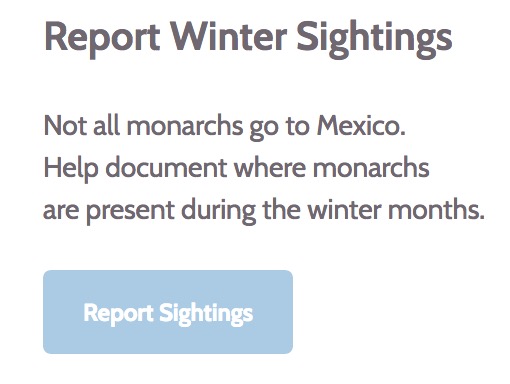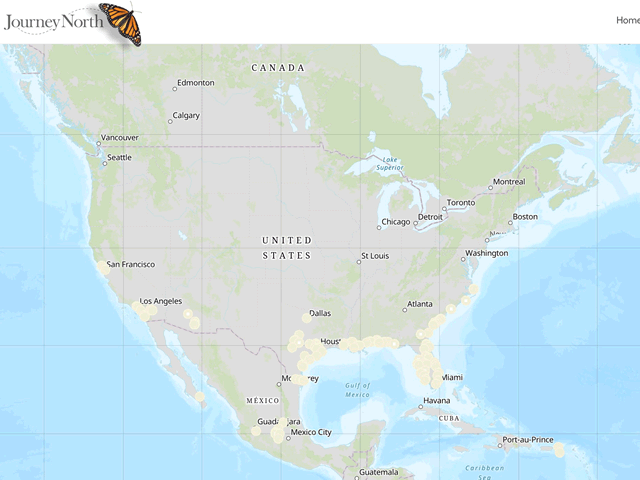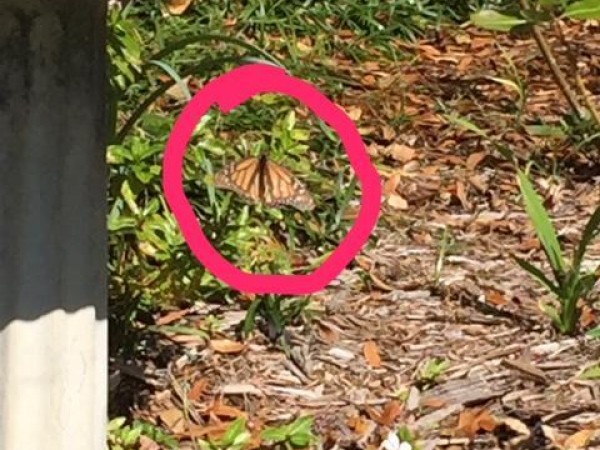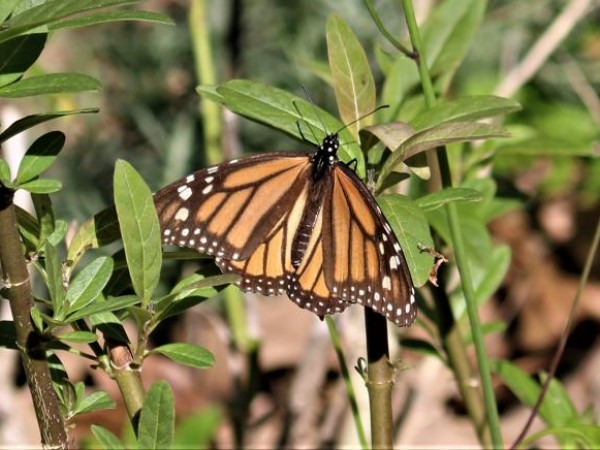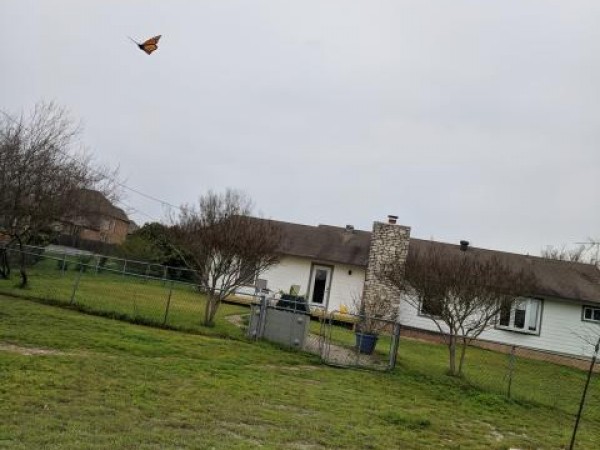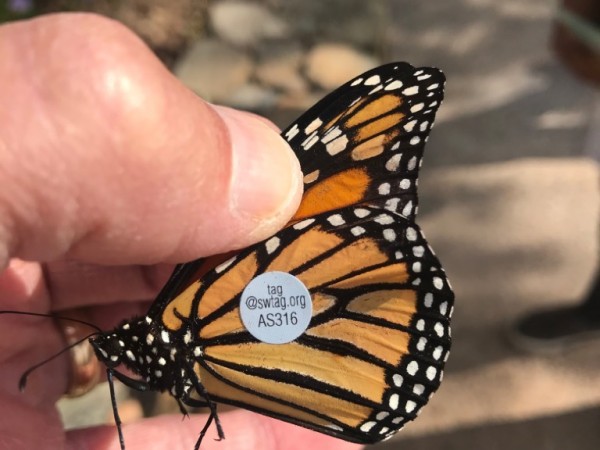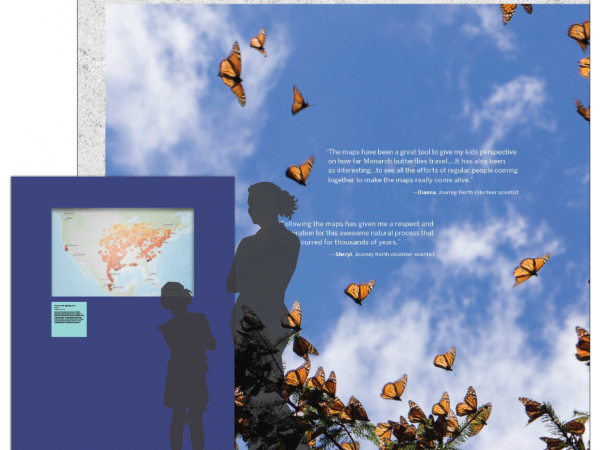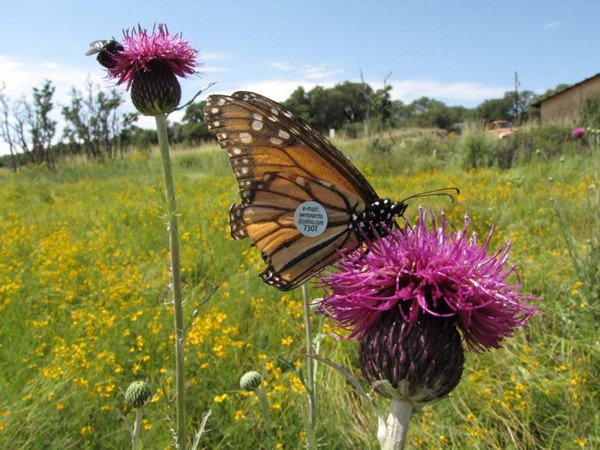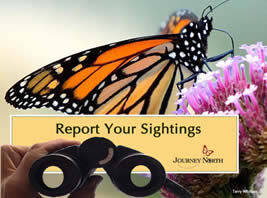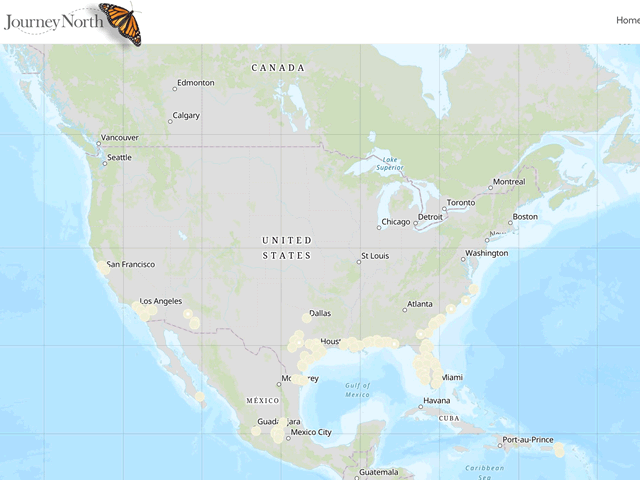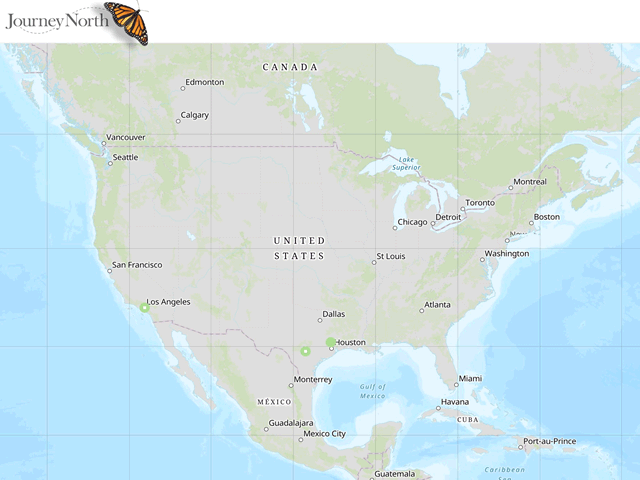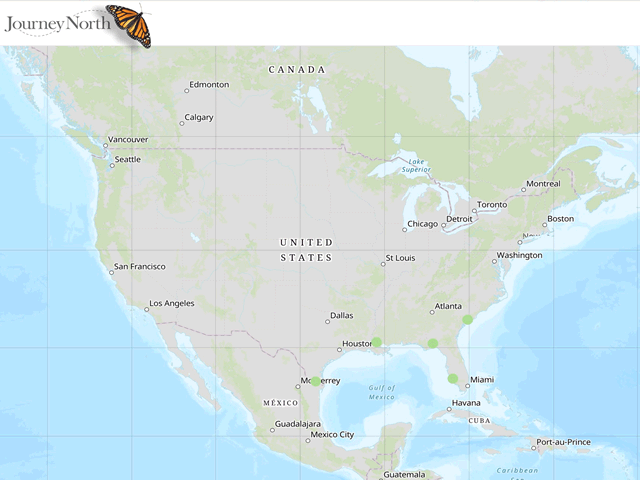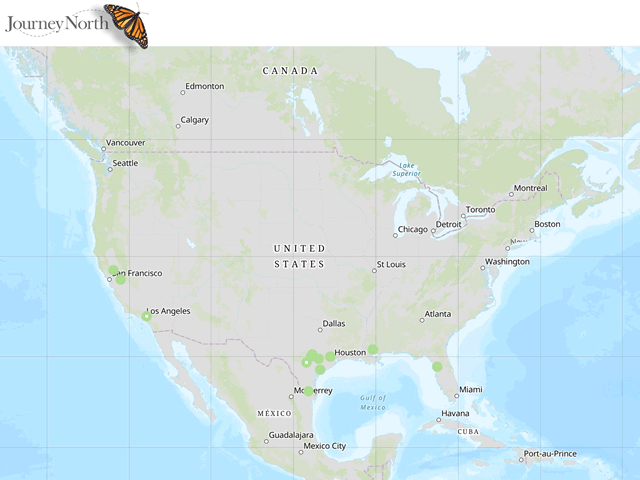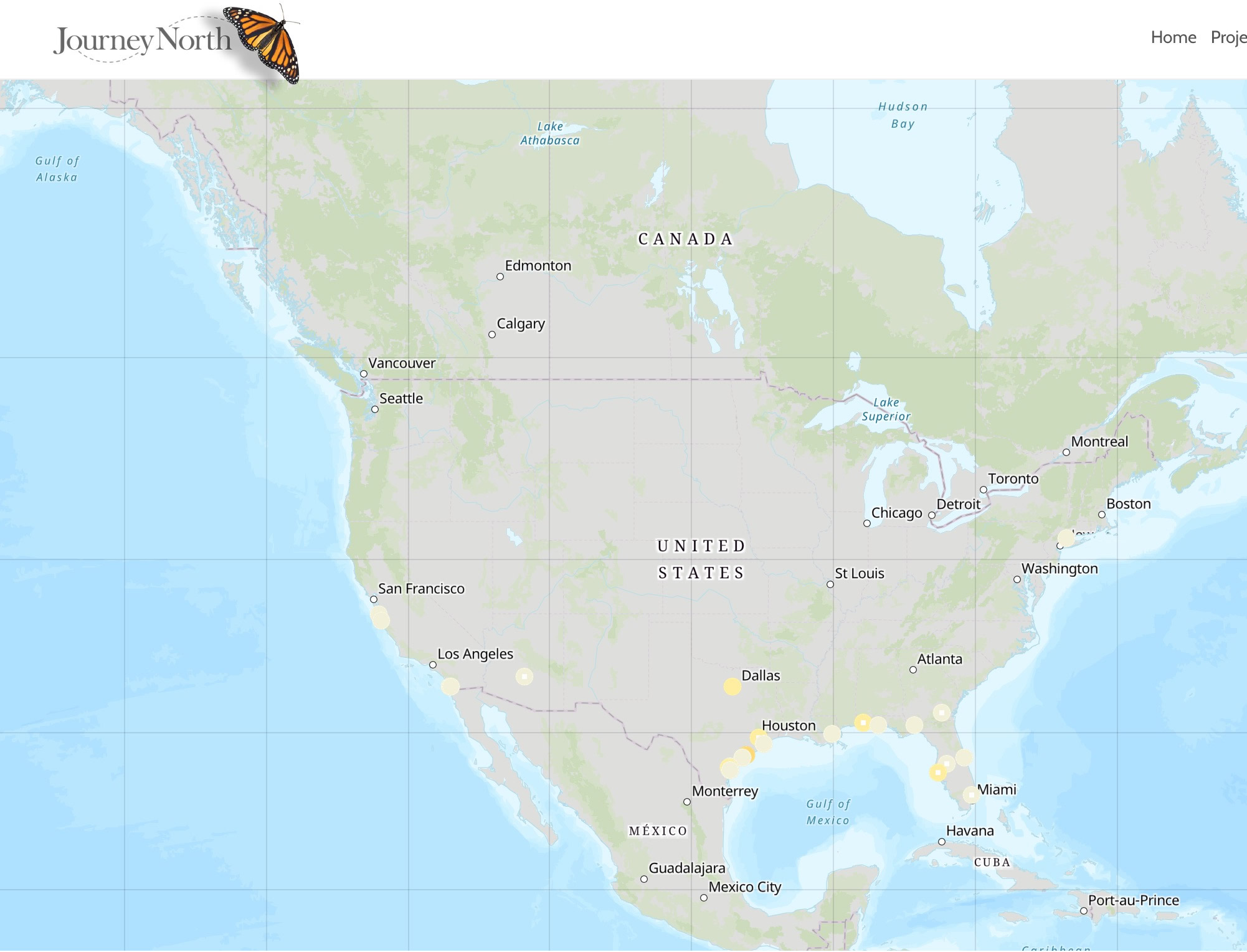Journey North Begins
Large numbers of monarchs have left the Monarch Sanctuaries in Mexico. Western monarch overwintering population is low again this year but there is hope and work to be done.
The Monarchs Overwintering in Mexico Begin Journey North
The stop and go nature of migration was evident this week at the overwintering sites in Mexico. The recent heat wave continues and has spurred monarchs on to northern destinations. A butterfly with worn, torn, or faded wings is a telltale sign that it's a migrant from Mexico. Please report your first monarch sightings.
Ms. Estela Romero describes what is happening at the El Rosario and Sierra Chincua Sanctuaries.
"The massive departure of the Monarchs has begun in considerable proportions for both El Rosario and Sierra Chincua Sanctuaries. Departures from El Rosario appear to be higher. Temperatures continue to increase, without any cooling respite."
Read more
During the past week, an increased number of monarch butterflies were sighted passing through the states of Coalhuila and San Luis Potosi in Mexico.
Reports provided to Journey North by Ms. Rocio Trevino, Coordinadora, Programa Correo Real, PROFAUNA A.C. confirm migration north has begun.
From Saltillo Coahuila: Rocío Treviño, “A las 13:00 horas hoy domingo una monarca llegó a descansar y alimentarse en el plumbago del jardin de mi casa, la observé durante 10 minutos, estaba en muy buenas condiciones. Día soleado con 29°C de temperatura. ¡Es la primer Monarca que veo esta temporada!” (03/01/2020) link to report
[Google translation: From Saltillo Coahuila: Rocío Trevino, “At 1:00 pm today Sunday a monarch came to rest and feed in the plumbago of the garden of my house, I watched it for 10 minutes, it was in very good condition. Sunny day with a temperature of 29 ° C. It is the first Monarch I see this season!”]From San Luis Potosi SLP: Cesar Posada, “Hoy a las 13:00 me toco ver a 5 monarcas volando al norte en la parte sur de la ciudad, luchaban contra el viento fuerte.” (03/01/2020) link to report
[Google translation: San Luis Potosi SLP: Cesar Posada, “Today at 1:00 pm I had to see 5 monarchs flying north in the southern part of the city, fighting the strong wind.” 03/01/2020]
Monarchs Heading North-Report Your Sightings
It’s a critical time as the monarchs race northward to produce the next generation. As you track migration this spring, try to predict the path and pace of migration. When and where will monarchs travel to get what they need?
Get ready to report your sightings - spring migration 2020 is officially underway! Will there be milkweed along the migration pathway? Don't forget to report milkweed emergence to Journey North.
From Kingsville, TX: Rebecca commented, “Flying around a wildlife garden. Seemed to be in good shape.” (03/04/2020) link to report
From Pensacola, FL: Gloria posed a good question, “We have 'local' monarchs all winter but this large lady is very faded, laid eggs on tiny leaves of milkweed and found a few nectar flowers in a sunny spot. Could she be from Mexico?” (02/28/2020)
From Round Rock, TX: Lori worried, “A female. Unfortunately, none of our milkweed has emerged yet and very few nectar sources.” (03/03/2020)
From Magnolia, TX: Sue reports, "Female Monarch (adult) late in the day oviposited on A. curassavica, and on A. oenotheroides." (03/05/2020)
From Montgomery, TX: Kelli H is open to also learning more about to help monarchs, “I have all milkweeds blooming and have seen stray butterflies visit and bees for winter feeding and they visit our camellia's when in bloom...The local Conroe Extenstion office will [host] classes...on Pollinators for bees and butterflies and other pollinators. I plan to be there and learn more as I enjoy afternoons in the garden observing them! (02/09/2020) Link to report
Western Population of Monarch
Ms. Gail Morris joins Journey North for another migration season bringing us up-to-date news on the western population of monarchs. As Ms. Morris writes,
"The Western monarch overwintering population is low again this year, but there is much to celebrate as well. The Xerces Society announced the results of the Western Monarch Thanksgiving count in January. The number of monarchs counted this year along the California coast came to a total of 29,418. While more sites were visited than last year, it does reflect a slight increase of 2,200 monarchs. While the number is very low again, there is also good news as well: The Western monarch population didn’t decline further. At first thought this may seem of small comfort but after the astonishing drop last year, there is hope in that monarch numbers did not continue into a downward spiral." Gail Morris, Coordinator of the Southwest Monarch Study (www.swmonarchs.org), a Monarch Watch Conservation Specialist, and the Vice President of the Monarch Butterfly Fund and the Central Arizona Butterfly Association.
Read more
Cause for Celebration
There is only 14 days until the spring equinox which is happening earlier than it has in over a century! Journey North wishes to take this moment to celebrate our partners such as Gail Morris, Estela Romero, and Rocio Trevino. We also wish to thank our Journey North community. Your contributions are critical to conserving and protecting monarchs and their habitat. As a testament that your are making a difference, the Oakland Museum of California chose to feature one of our 2019 monarch migration maps in their exhibit called, You Are Here. If you visit this exhibit, please share your photos via Journey North social media channels. Thank you to all who contributed quotes for to be used in this exhibit.
Monarchs & Milkweed Spring / Summer Maps
After FIRST sightings, please report:
- Monarch Adult Sighted
- Milkweed Sighted
- Monarch Egg Sighted
- Monarch Larva Sighted
- Monarch (OTHER observations) *including behaviors such as mating and nectaring


